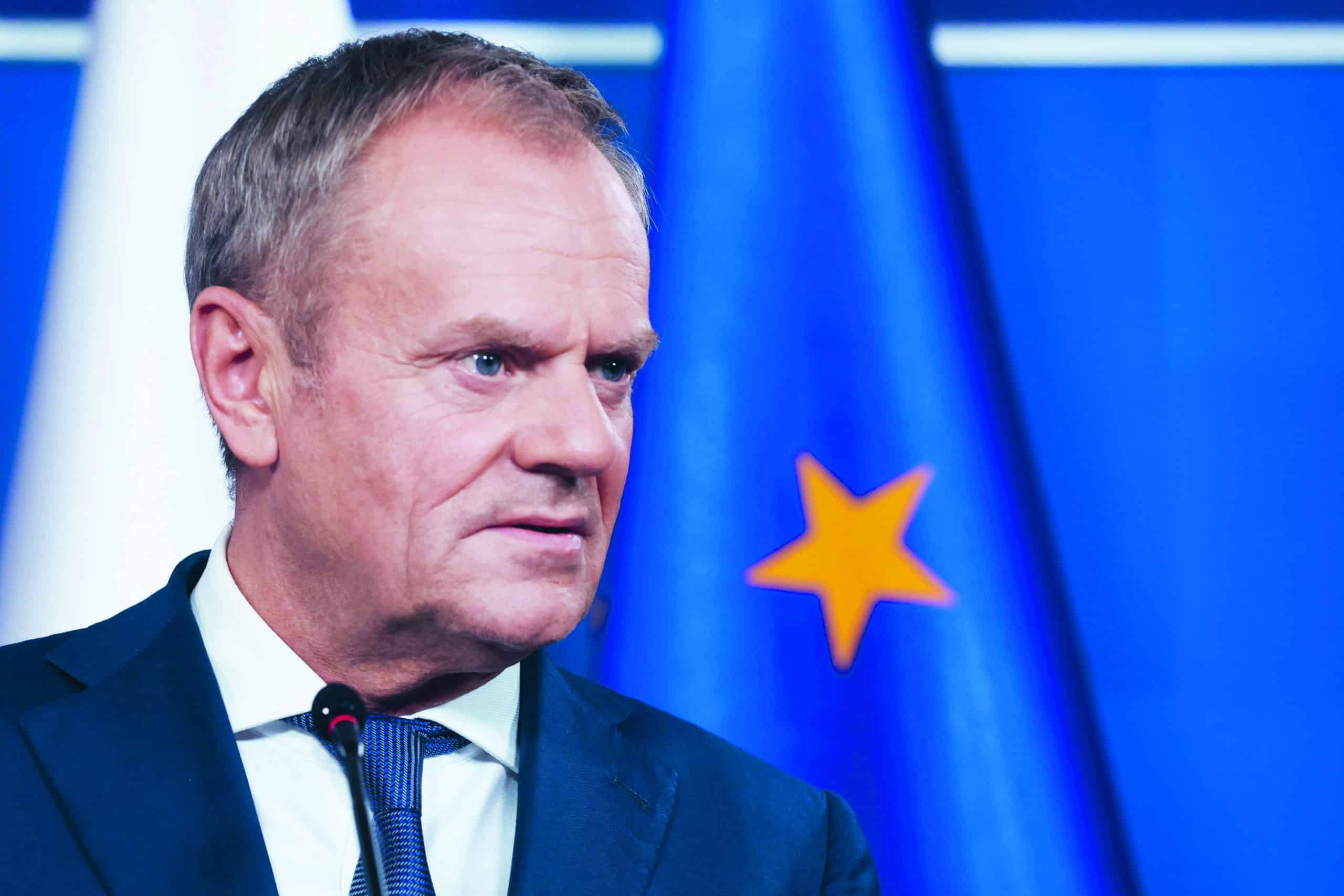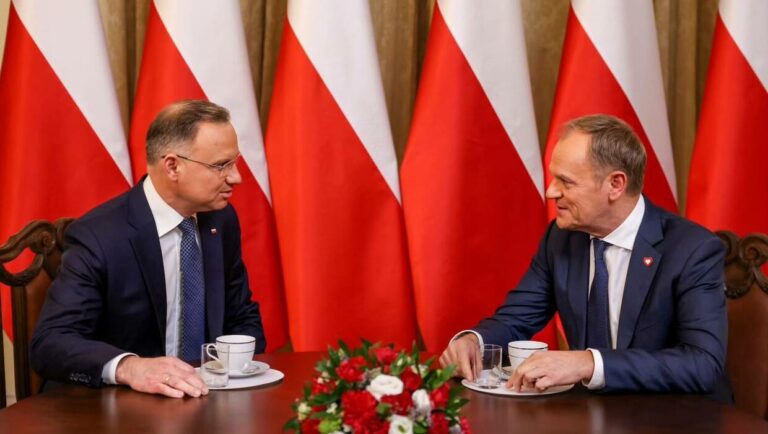Tusk’s First Year Back
Now leading a broad coalition, how has Tusk’s government tackled Poland’s economic challenges over the past year?
Donald Tusk’s second turn at governing Poland with a broad coalition government has not been plain sailing, and the public gave it a mark of “could do better” in a recent opinion poll carried out by the government’s public opinion monitor, CBOŚ.
More than two-fifths of those surveyed by CBOŚ in October “deny any achievements or successes to Donald Tusk’s government” and do not see “any advantages in its activities so far,” the report reads. A quarter of respondents refused to comment on the government, while a third rated its performance positively to a lesser or greater degree.
Starting a Secondhand Car
However, like the purchaser of a secondhand car, the current Prime Minister inherited many issues with the economic engine that couldn’t be changed overnight and were not necessarily apparent when taking the wheel.
Firstly, Tusk’s coalition with multiple parties did not take over power immediately on October 15. The former ruling party, Law and Justice (PiS), held on, exhausting every possibility of forming a coalition with other parties themselves until December 13. During this time, most of the work had already been done on the 2024 budget, which included generous increases in minimum wages and promises of high social spending.
Deficit Reduction Planned
It was, therefore, a near certainty that the government would encounter issues with its deficit, and politically driven cuts were not an option, as Tusk’s political group needs to keep the electorate onside. Next year, Poland will return to the polls for the presidential election as current President Andrzej Duda steps down.
For the second time under a Donald Tusk government—the first time was during his second term of his previous government in 2013, following a rush of spending in the run-up to Euro 2012, which Poland co-hosted with Ukraine—the EU has placed Poland under excessive deficit measures. Poland will exceed the EU’s 3% budget deficit ceiling in 2024 and 2025 and breach the 60% threshold for government debt-to-GDP in 2026.
While increased defense spending is the reason given by the government for the heightened deficit, it is only part of the explanation. Another factor is that companies with significant treasury shareholdings made write-offs on the value of their assets, causing multi-million złoty losses, while the previous government had collected substantial dividends.
The differences in government receipts run into the tens of billions of złotys. The new managers brought in by ministers overseeing treasury-owned companies have criticized the populist statism of their predecessors appointed by PiS, though a few billion here and there would certainly have helped close the budget gap.
Tusk’s Government and Inflation
Governments are often blamed for inflation and frequently lose power because of it, even when their policies are not at the root of the problem.
Inflation was at 8.4% on election day in 2023, down from a high of 18.4% earlier in the year. The price index fell to as low as 2.0% in March before rising again to 4.9% in September, with ING Bank Śląski predicting an increase to 5.0% by year-end.
This drop in inflation was largely due to falling fuel prices and, in part, to the National Bank of Poland’s hawkish stance, which held interest rates flat at 5.75% for the past year. It would be fair to say that Tusk’s government had little direct influence over these developments.
Fuel Subsidies
However, one government intervention that has pushed prices up is the removal of fuel subsidies and the return of VAT on basic foodstuffs and fuel. These subsidies and tax exemptions had been introduced in 2023 to combat rising prices due to pressures from the war just across Poland’s border.
Nonetheless, the electorate seems to have forgotten this history and places blame on the current government. According to CBOŚ poll authors, “One in ten respondents feels painfully affected by dropping living standards and blames Donald Tusk’s government for this.”
Survey respondents also pointed to both the lack of salary increases and the rising costs of living, including higher utility bills and elevated prices in stores.
Taxes and Social Security
The coalition government, which includes a wide range of political perspectives from monetarist conservatives and liberals to the hard left, agreed last year on several tax reforms. These include holidays from social insurance contributions for the self-employed, though limited to one month per year. They also introduced a minimum six-month notice for changes in tax law, though in practice, many laws are still prepared last-minute. A return to fixed rates of social security for the self-employed remains a proposal without precise policy details. Income tax for sole traders will be paid on the date of cash receipt, not on the date of the invoice, starting in 2025. The government implemented ZUS coverage of employee sick leave from the first day, though the raising of the first tax threshold to 60,000 złotys has been pushed back to 2026. Additionally, there has been no progress on the promise to allow families to file taxes jointly as a unit.
European Funds and Legislation
One thing was certain before the election: Tusk, the former President of the European Council, would work to quickly remove Poland from the EU’s watchlist for violations of rule-of-law principles, which had halted funds from the European Union’s recovery fund.
This mix of grants and loans, worth tens of billions of euros, had been held up for a year and a half under the previous government.
Tusk’s government was quick to claim victory. “We waited a bit, not too long, but we did it! This is truly a very important day. We’ve put in a lot of work together, especially Poles on October 15th, choosing democracy and the rule of law once again. They are the true heroes of this story, which has reached its conclusion today,” Tusk said. He added that the unblocked funds amount to “600 billion PLN for Poland,” stating, “This is truly a mountain of money that we will use well to ease everything that causes tension and concerns today.”
The challenge ahead, however, is whether there will be time to complete projects before the deadline for claiming European funds. The current government is requesting EU permission to redirect some of these funds toward flood relief and defense spending instead of just transition energy projects and development in regions impacted by the economic downturn caused by the COVID-19 lockdowns.
The divide in opinions among poll respondents about the government’s performance mirrors the election results of a year ago. Respondents from larger cities tend to hold stronger opinions, with a greater percentage expressing satisfaction or dissatisfaction, while those from smaller towns with populations over 100,000 are generally less content. In rural areas, most people see no change or remain undecided.







